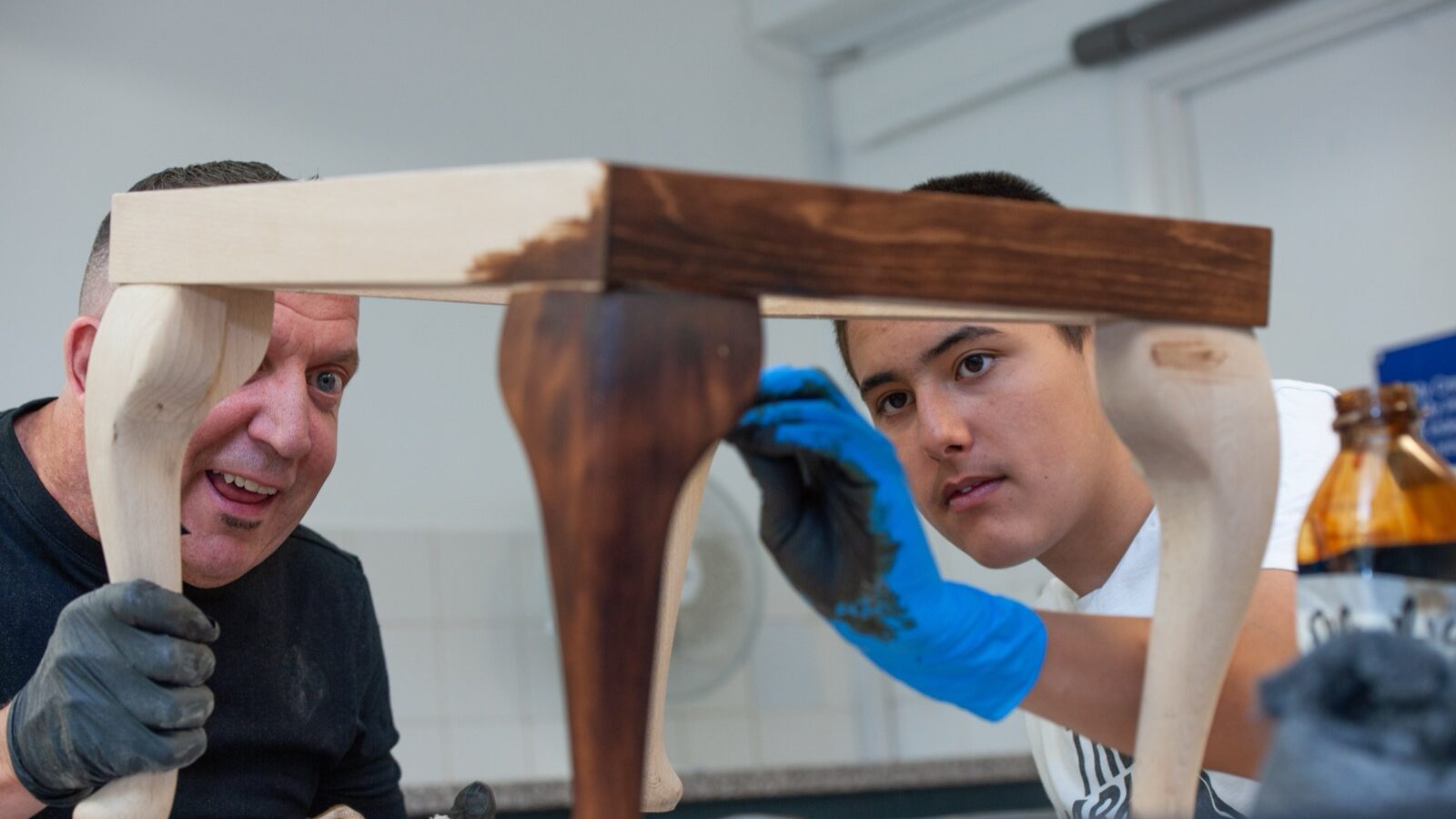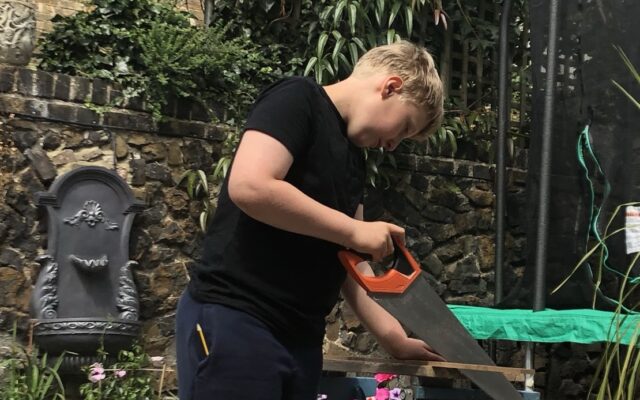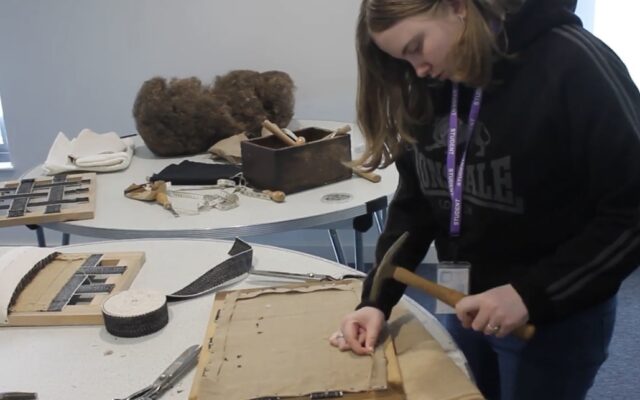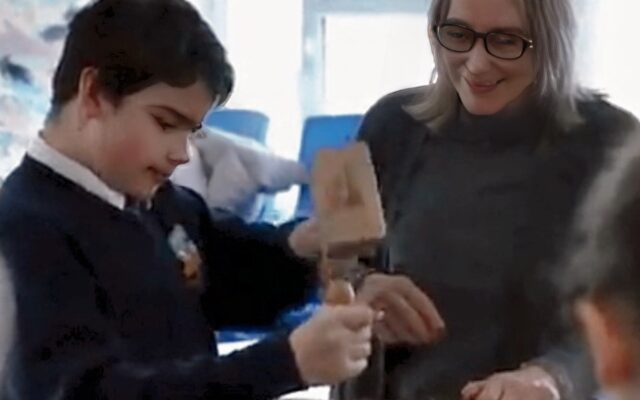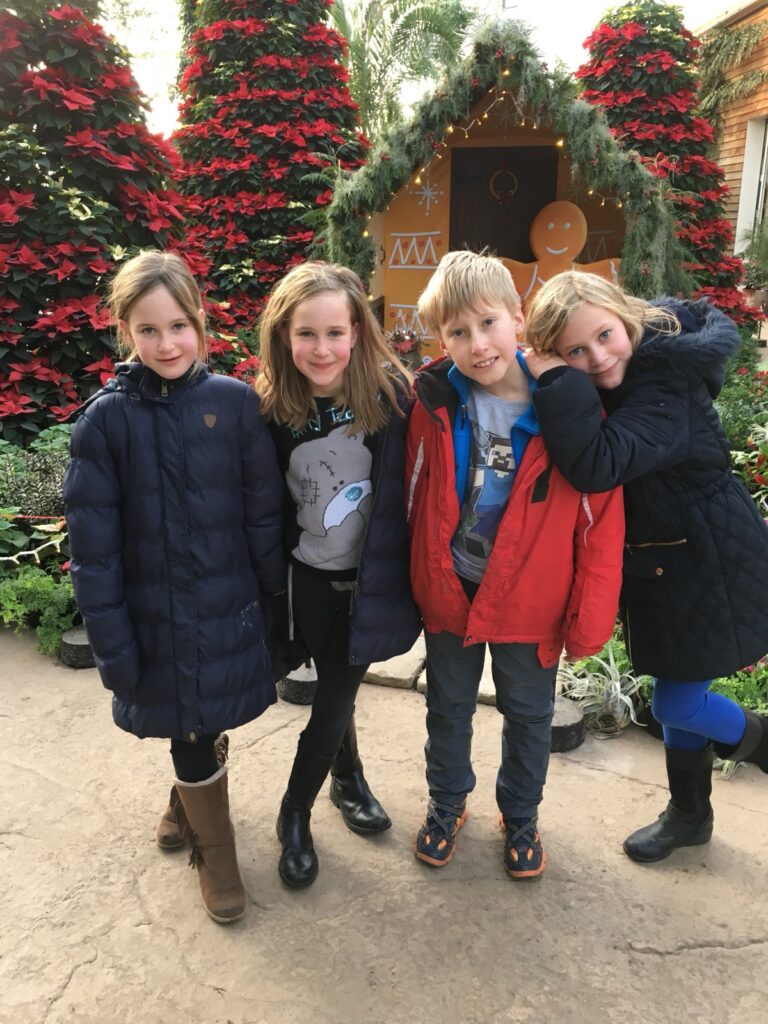The smell of wood stain fills the air in a classroom as a teenager with learning disabilities concentrates hard on polishing a bespoke library stool.
Across the room, his classmate is feeling the coil of an upholstery spring, marvelling at its bounciness and the fact it could support a person’s weight.
This is no ordinary lesson at a special school in Kent. This is the pilot project for a new national charity, Sammy’s Foundation, set up to teach heritage crafts to young people with complex neurological conditions.
It is also the first step in building a movement that charity founder and mother Patricia Alban hopes will bring meaning to the senseless death of her son by giving young disabled people “the chance Sammy never had”.
Alban, an upholsterer and mother of four, lost Sammy when he was 13 after he fell from a cliff in their home town of Ramsgate, Kent. The teenager died in hospital four days later from his injuries.
A coroner’s report attributed Sammy’s death in 2020 to failure by the local authorities in providing support for him and his family.
Sammy lived with Prader-Willi syndrome, a rare genetic condition that causes learning disabilities and behavioural problems. For Sammy, this included high-risk behaviour that would result in self-harm.
During the inquest into Sammy’s death, the coroner said there was a clear failure in what Kent County Council provided to Sammy’s family to help with his care.
She issued a prevention of future deaths report, warning more fatal incidents may occur “if children with complex neuro-developmental needs are excluded from accessing the care and treatment they require to keep them safe”.
Alban says: “Sammy loved watching and learning what I was doing with tools. He found working with his hands invigorating, satisfying, and calming. This particularly helped when he was without a school place for a year because the local authority wouldn’t fund the right support.”
She adds: “I know from his commitment that young people with complex neurological conditions can have the focus and dedication it takes to become master artisans. I believe it is critically important that they can develop purposeful lives and remain in their local communities with their families.
“My hope is that the foundation will help talented young people uncover skills and attributes that will help them to find a valuable and fulfilling place in a world which, sadly, does not welcome them with open arms. This isn’t just a way to keep them busy.
“We will deliver high-quality training in skills such as French polishing, button making, wood carving, canework and upholstery.
“We are also including arts that are in danger of extinction in the UK such as passementarie – creating elaborate edgings for furnishings.
“Our young people will craft quality, exclusive homeware for commissions by interior designers.”
People with complex conditions can have the focus and dedication it takes to be master artisans
Sammy’s Foundation will provide group sessions for younger children as well as one-to-one work with those primarily aged 16-25. It will also arrange the sale of their finished products.
Alban hopes the stepping stone courses will lead to an accredited programme that can be rolled out nationally.
Master craftspeople have donated time and support. French polisher Stewart Kemp, who has worked at Claridge’s hotel in Mayfair, London, gave bespoke training to a young man in how to skilfully apply polish to a piece of fine furniture.
Alban says: “These techniques are so specialised but we’ve seen from the early sessions how quickly young people with complex conditions can absorb complicated skills.
“There is no better way to show Sammy’s legacy and worth than by giving others the opportunities he would have excelled in.”
Sam Carlisle is a freelance journalist


